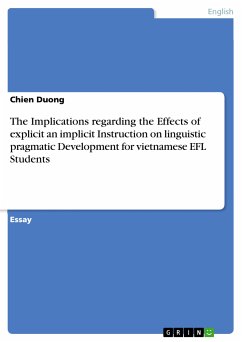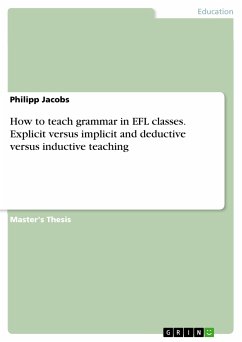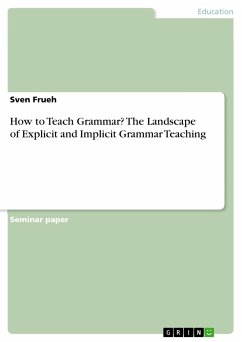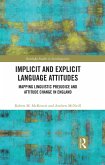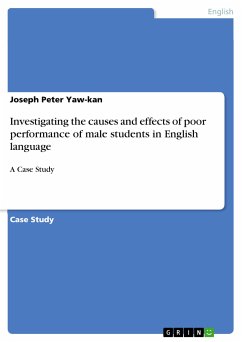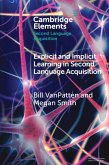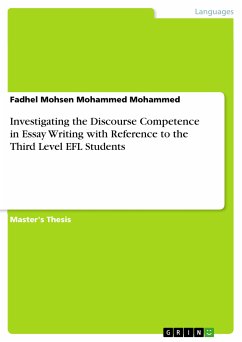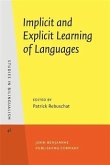Essay from the year 2018 in the subject English Language and Literature Studies - Other, grade: 12, University of Newcastle, language: English, abstract: In recent years, a considerable scholarly literature has accumulated regarding the most effective techniques for EFL students to develop what is termed, 'pragmatic linguistic competency'. Because the concept of 'pragmatic linguistic competency' represents a notion that is somewhat obscurely defined as 'the capacity to use English language appropriately in spontaneous speaking contexts', the latitude for ambivalent interpretation is more common than we believe it should be. Part of our purpose in this paper is to relieve at least some of the resultant ambiguity surrounding this definition by reconceptualising it in the context of the current pedagogic debate which differentiates two EFL approaches to pragmatic linguistic competency. Both heuristic approaches have come to feature prominently within this framework. These techniques or approaches have become known as 'explicit' and 'implicit' instructional pedagogies. We argue that the explicit pragmatic language acquisition process signifies learning environments in which the learner is introduced to a range of explicitly relevant rules. These rules are reckoned to be interpretively foundational to the form of linguistic constructions required, in the sense that these rules function as a coherent combinatory set. On the other hand, the heuristic of implicit pedagogy "makes no overt reference to rules or forms" (Doughty, 2007, p.265), but only to forms of speech that depend upon rule-governed pragmatics, whose logical structures are to be discovered as students manipulate them, more or less skillfully, during their actual participatory contributions to the conversational exchange. Our objective in this paper will be concerned to diminish the ambivalence which characterises the interpretation of pragmatic linguistic competency by providing a more comprehensive and coherent conceptual scheme for its linguistic deployment.
Dieser Download kann aus rechtlichen Gründen nur mit Rechnungsadresse in A, B, BG, CY, CZ, D, DK, EW, E, FIN, F, GR, HR, H, IRL, I, LT, L, LR, M, NL, PL, P, R, S, SLO, SK ausgeliefert werden.

